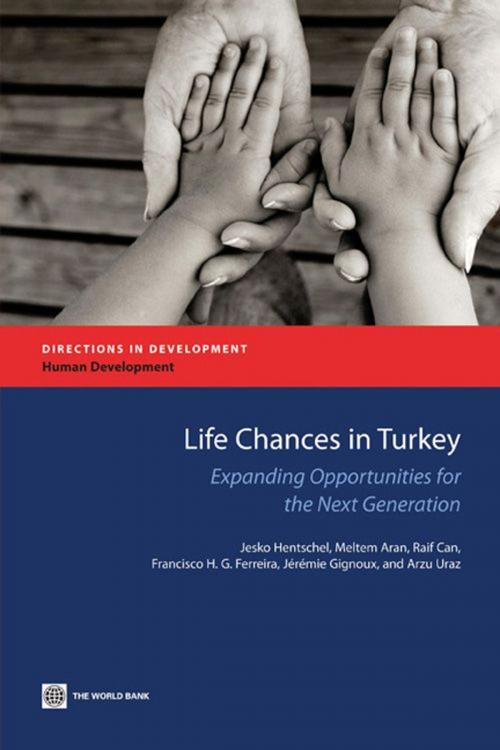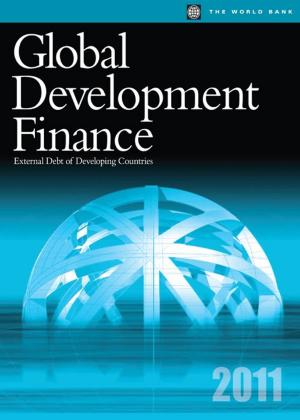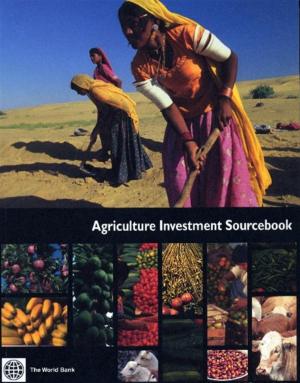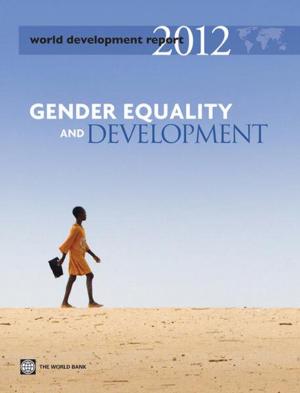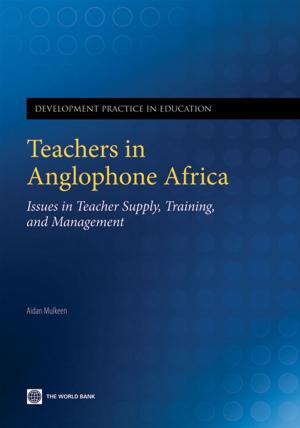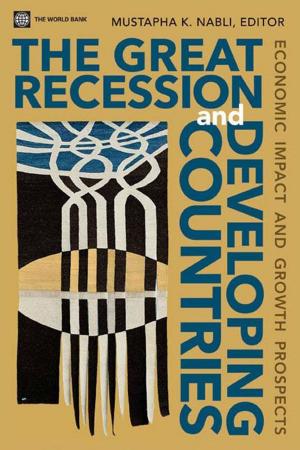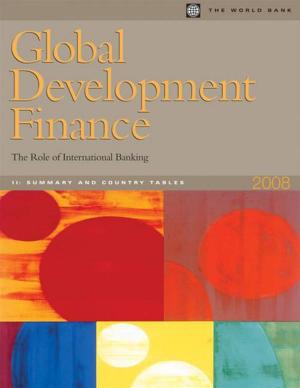Life Chances In Turkey: Expanding Opportunities For The Next Generation
Business & Finance, Economics, Economic Development| Author: | Hentschel Jesko; Aran Meltem; Can Raif; Ferreira Francisco H.G.; Gignoux Jérémie; Uraz Arzu | ISBN: | 9780821384015 |
| Publisher: | World Bank | Publication: | June 16, 2010 |
| Imprint: | Language: | English |
| Author: | Hentschel Jesko; Aran Meltem; Can Raif; Ferreira Francisco H.G.; Gignoux Jérémie; Uraz Arzu |
| ISBN: | 9780821384015 |
| Publisher: | World Bank |
| Publication: | June 16, 2010 |
| Imprint: | |
| Language: | English |
Children in Turkey have vastly different odds of success. Their paths are affected by factors over which they have no control, such as how wealthy or educated their parents and even grandparents are. By investing in its children and youth, Turkey can create a virtuous cycle whereby these children and youth contribute more to their country's economic growth and social development, helping to realize its ambitious goals.Written to contribute to the public policy debate, Life Chances in Turkey: Expanding Opportunities for the Next Generation notes that girls are at a particular disadvantage. Compared to a boy born to well-off, highly educated parents in one of the urban centers of the country's west, a girl born in a remote eastern village to poor parents with primary school degrees is four times as likely to suffer from low birth weight, one-third as likely to be immunized, and ten times as likely to have her growth stunted as a result of malnutrition. She has a one-in-five chance of completing high school, whereas the boy will likely attend college.With child development trajectories thus diverging early in life, pro-equity policies should focus on reaching the most disadvantaged children early in their life, ideally before birth. Turkey, with the active involvement of nongovernmental organizations, has piloted a number of highly successful programs to reach and support disadvantaged children. But it can do more: only 6 percent of the country's total public social spending reaches children below the age of six. About four times more is spent on a middle-aged or elderly person than on a child.Life Chances finds that if today's under-40 Turkish adults had all benefited from one year of preschool education when they were six years old, family incomes could be up to 8 percent higher, one-tenth of poor families would not live in poverty today, and about 9 percent more women in other words, millions could be working or looking actively for a job.
Children in Turkey have vastly different odds of success. Their paths are affected by factors over which they have no control, such as how wealthy or educated their parents and even grandparents are. By investing in its children and youth, Turkey can create a virtuous cycle whereby these children and youth contribute more to their country's economic growth and social development, helping to realize its ambitious goals.Written to contribute to the public policy debate, Life Chances in Turkey: Expanding Opportunities for the Next Generation notes that girls are at a particular disadvantage. Compared to a boy born to well-off, highly educated parents in one of the urban centers of the country's west, a girl born in a remote eastern village to poor parents with primary school degrees is four times as likely to suffer from low birth weight, one-third as likely to be immunized, and ten times as likely to have her growth stunted as a result of malnutrition. She has a one-in-five chance of completing high school, whereas the boy will likely attend college.With child development trajectories thus diverging early in life, pro-equity policies should focus on reaching the most disadvantaged children early in their life, ideally before birth. Turkey, with the active involvement of nongovernmental organizations, has piloted a number of highly successful programs to reach and support disadvantaged children. But it can do more: only 6 percent of the country's total public social spending reaches children below the age of six. About four times more is spent on a middle-aged or elderly person than on a child.Life Chances finds that if today's under-40 Turkish adults had all benefited from one year of preschool education when they were six years old, family incomes could be up to 8 percent higher, one-tenth of poor families would not live in poverty today, and about 9 percent more women in other words, millions could be working or looking actively for a job.
